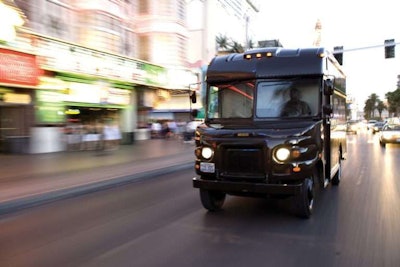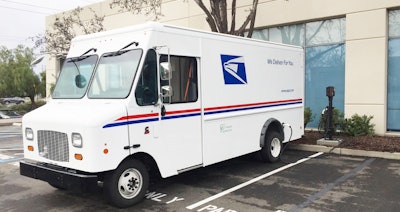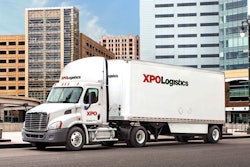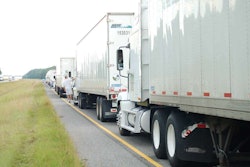At a time when the nation’s unemployment rate is soaring, Amazon is hiring.
Major players in the pickup and delivery segment, like Amazon, are facing big changes amid the COVID-19 virus outbreak, including shifts in delivery volume as millions of people across the U.S. shelter in place and avoid going out into public to work or shop. Instead, they’re working and shopping from home, which is keeping online retailers and parcel delivery companies on the move.
“We are seeing increased online shopping and as a result some products such as household staples and medical supplies are out of stock,” an Amazon spokesperson said. “With this in mind, we are temporarily prioritizing household staples, medical supplies and other high-demand products coming into our fulfillment centers so we can more quickly receive, restock and ship these products to customers.”
To help meet the surge in demand, Amazon has opened 100,000 new full- and part-time positions within their delivery network and at fulfillment centers throughout the U.S. The company’s $350 million job expansion effort will result in $2 an hour raises across the country and a starting pay of $15 an hour. The company has made the switch to video-based interviews for most of its applicants.
 UPS is offering to compensate employees who fall ill to COVID-19.
UPS is offering to compensate employees who fall ill to COVID-19.Amazon handles deliveries for roughly half of its online orders and leans heavily on the U.S. Postal Service and UPS to handle the rest.
Although deliveries for UPS have grown in some areas, they’re not looking to bulk up their workforce.
“It’s a mixed bag with volume up in some areas and flat in others,” said UPS spokesperson Dan McMackin.
UPS is leaning on its Coyote Logistics freight brokerage division to help with deliveries when needed.
Predictably, the same household and sanitizing goods flying off the shelves in stores are also hot sellers online, which creates some challenges in the growing push to step-up sanitizing efforts for the safety of workers and customers.
“Some supplies are in short supply and our procurement team is working around the clock, and around the world, to obtain the cleaning items needed,” McMackin said. “We are replenishing them as soon as available and distributing them across our network. We also respect that companies are prioritizing certain items for healthcare and public service organizations. So we are using alternatives, for example, certain pre-mixed spray cleaners are in short supply and instead we are safely mixing diluted bleach cleaner in commercially available spray bottles to clean our equipment and vehicles.”
Some deliveries are proving exceptionally vital during the pandemic. FedEx, for instance, has been picking up and delivering COVID-19 test specimens from drive-thru testing centers at major retailers across 12 states. The delivery giant dedicated 28 flight legs as well as specialized pickup and delivery operations that were aided by the U.S. Department of Health and Human Services.
Click here to view our full coverage of the coronavirus' impact on the trucking industry from the leading industry publications of Commercial Carrier Journal, Overdrive, Truckers News and Trucks, Parts, Service.
“We have a great responsibility in these unprecedented times to do what we do best—mobilize our network quickly to help the communities where we live and work,” said Raj Subramaniam, president and chief operating officer of FedEx. “As the world’s largest cargo airline, we have the ability to flex our operations in some of the most challenging of circumstances. By swiftly taking action to stand up this special operation, we are playing an important role in advancing the speed of delivery for these critical test samples.”
The drive for a healthier living
To help reduce the spread of COVID-19, pickup and delivery employees are taking on healthier habits, which includes more than just frequent hand-washing and sanitizing work surfaces.
“We are following the CDC’s recommendations to maintain the available supply of masks for healthcare workers and those who are caring for people who are sick,” McMackin said. “Accordingly, we are making masks available to our drivers who make deliveries to healthcare and assisted living facilities.”
To help prevent the spread of the virus, delivery companies are dropping some services which require close personal contact, such as signing for packages. At Amazon, employee breaks have been staggered and break rooms have been reorganized to increase social distancing. Other delivery companies have implemented similar strategies.
 USPS has worked with union reps to enhance its leave of absence policy
USPS has worked with union reps to enhance its leave of absence policyThough workers may feel compelled to show up to work even though they’re feeling under the weather, now is not the time for heroics.
According to a statement on the coronavirus posted on the USPS website, the nation’s oldest pickup and delivery organization is encouraging ill employees to remain at home and has worked with postal unions to temporarily expand leave options for their employees.
UPS is also offering a liberal leave of absence policy.
“If any employee is ill, they are required to seek medical treatment,” McMackin said. “We do not want them to come to work if they are sick. UPS will provide up to 10 days of compensation for any employee who is diagnosed with the virus, or who is required to quarantine, or if a household member is diagnosed with the virus and the employee is required to quarantine.”
Amazon ponied up $25 million to set up its Amazon Relief Fund which will support independent delivery service partners and their drivers, Amazon Flex participants and seasonal employees facing financial hardship during the pandemic. Relief applicants can receive up to two weeks of pay if diagnosed with COVID-19 or placed into quarantine by the government or Amazon.












